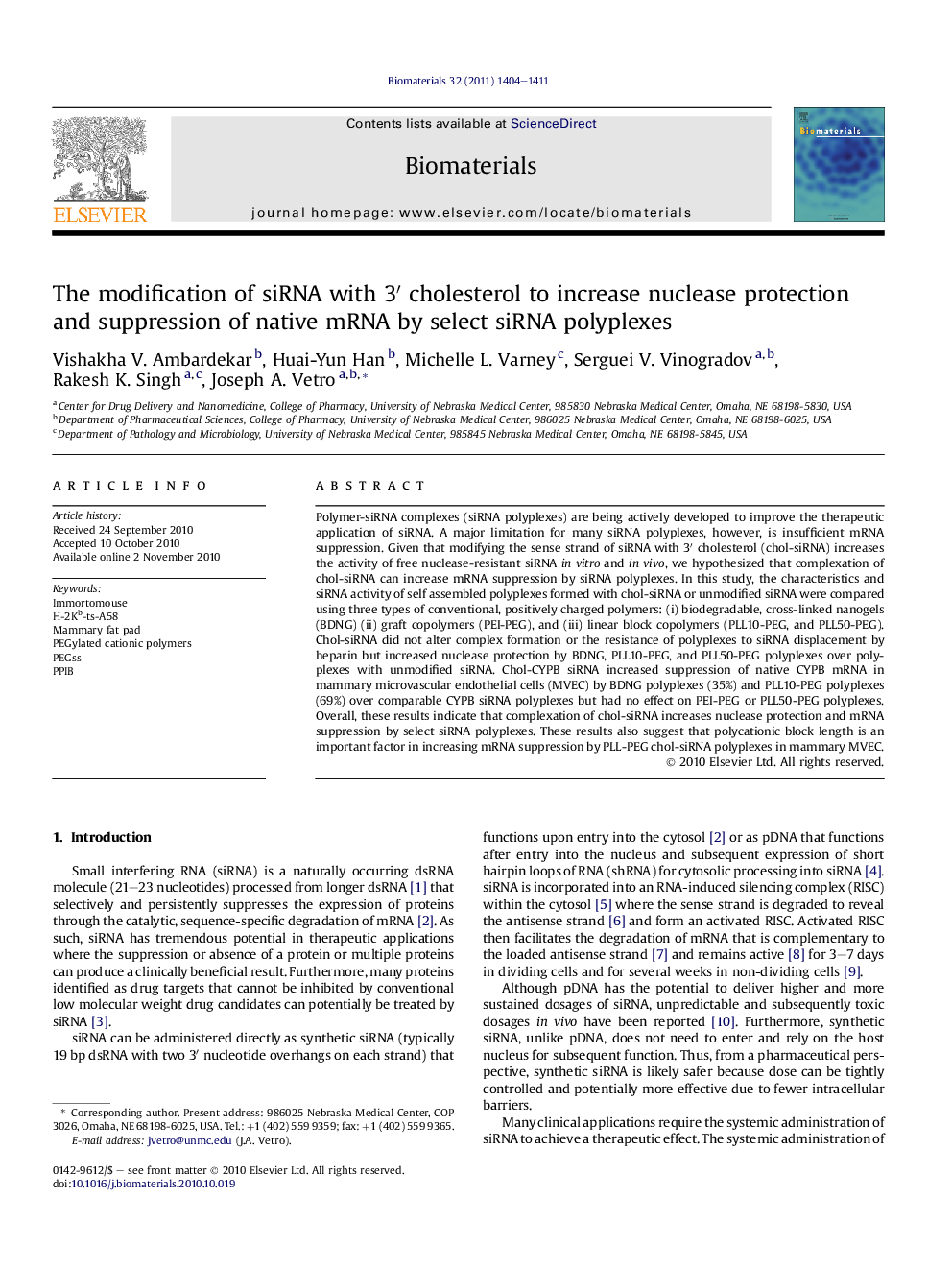| Article ID | Journal | Published Year | Pages | File Type |
|---|---|---|---|---|
| 7841 | Biomaterials | 2011 | 8 Pages |
Polymer-siRNA complexes (siRNA polyplexes) are being actively developed to improve the therapeutic application of siRNA. A major limitation for many siRNA polyplexes, however, is insufficient mRNA suppression. Given that modifying the sense strand of siRNA with 3′ cholesterol (chol-siRNA) increases the activity of free nuclease-resistant siRNA in vitro and in vivo, we hypothesized that complexation of chol-siRNA can increase mRNA suppression by siRNA polyplexes. In this study, the characteristics and siRNA activity of self assembled polyplexes formed with chol-siRNA or unmodified siRNA were compared using three types of conventional, positively charged polymers: (i) biodegradable, cross-linked nanogels (BDNG) (ii) graft copolymers (PEI-PEG), and (iii) linear block copolymers (PLL10-PEG, and PLL50-PEG). Chol-siRNA did not alter complex formation or the resistance of polyplexes to siRNA displacement by heparin but increased nuclease protection by BDNG, PLL10-PEG, and PLL50-PEG polyplexes over polyplexes with unmodified siRNA. Chol-CYPB siRNA increased suppression of native CYPB mRNA in mammary microvascular endothelial cells (MVEC) by BDNG polyplexes (35%) and PLL10-PEG polyplexes (69%) over comparable CYPB siRNA polyplexes but had no effect on PEI-PEG or PLL50-PEG polyplexes. Overall, these results indicate that complexation of chol-siRNA increases nuclease protection and mRNA suppression by select siRNA polyplexes. These results also suggest that polycationic block length is an important factor in increasing mRNA suppression by PLL-PEG chol-siRNA polyplexes in mammary MVEC.
